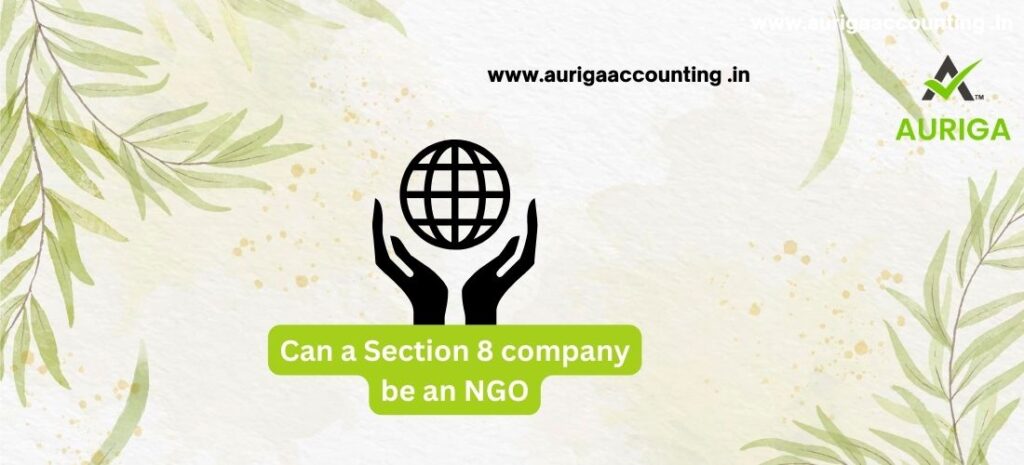
IT IS MANDATORY THAT THE NAME OF SECTION 8 COMPANY SHELL INCLUDE WORDS LIFE FOUNDATION FORUM ASSOCIATION FEDERATION ETC?
Introduction
ToggleYOU NEED TO KNOW IT IS MANDATORY THAT THE NAME OF SECTION 8 COMPANY SHELL INCLUDE WORDS LIFE FOUNDATION FORUM ASSOCIATION FEDERATION ETC?
The Ministry of Corporate Affairs in India has provided naming guidelines for Section 8 companies that recommend the use of certain terms to reflect their non-profit character. These terms include “Foundation,” “Forum,” “Association,” “Society,” “Trust,” “Institute,” “Organization,” “Council,” “Federation,” and similar words. However, these guidelines are not mandatory, and Section 8 companies can have names that do not include these terms.
In this comprehensive guide, we will explore the naming guidelines and conventions for Section 8 companies, their purposes, and the flexibility in choosing names that align with their non-profit and charitable objectives. Visitofficialwebsite
UNDERSTANDING NAMING GUIDELINES FOR SECTION 8 COMPANIES
Clarity and Transparency: The primary goal of these guidelines is to ensure that the name of a Section 8 company is clear and transparent regarding its non-profit or charitable character. Using terms like “Foundation,” “Association,” or “Society” helps convey this message to the public and stakeholders.
Differentiation: By recommending the inclusion of specific terms, the guidelines help distinguish Section 8 companies from for-profit entities. This differentiation is essential to prevent confusion and to ensure that the public can easily identify the organization’s non-profit objectives.
Public Trust: Clear and transparent names enhance public trust and confidence in Section 8 companies. When the public sees a name that reflects non-profit or charitable intent, they are more likely to engage with and support the organization.
FLEXIBILITY IN CHOOSING NAME FOR SECTION 8 COMPANY
Use of “Section 8” or “Limited”: Every Section 8 company must include the words “Section 8” or “Limited” at the end of its name. This is a mandatory requirement and helps identify the company as a Section 8 entity. For example, “XYZ Foundation Section 8 Limited.”
Distinctiveness: Names should be distinctive and not too similar to the names of existing companies or registered trademarks. This is to prevent confusion and trademark infringement.
Descriptive and Relevant: While the choice of specific words is recommended, it is also important that the selected name is relevant and descriptive of the organization’s non-profit or charitable objectives. The name should provide a clear understanding of the organization’s mission and activities.
Avoiding Undesirable Names: Names that are offensive, deceptive, or against public policy should be avoided. The Registrar of Companies (RoC) has the authority to reject such names.
PROCESS OF SELECTING AN APPROPRIATE NAME
Research: Begin by conducting thorough research to ensure that the desired name is not already in use by an existing company or trademarked.
Review Guidelines: Familiarize yourself with the naming guidelines and conventions provided by the Ministry of Corporate Affairs.
Consider Objectives: Think about the objectives and mission of the organization. The name should reflect these objectives.
Seek Legal Advice: It’s advisable to seek legal advice or consult with a corporate secretary to ensure compliance with the naming rules and guidelines.
Alternative Names: Have alternative names in mind in case the primary choice is not approved by the Registrar of Companies (RoC).
Submit for Approval: Once you’ve selected a name, submit it for approval to the RoC. The RoC will review the name to ensure compliance with the rules and regulations.
Wait for Approval: The RoC will approve the name if it meets all the criteria. Once approved, you can proceed with the incorporation process.
What are the name requirements for Section 8 company
The naming requirements for a Section 8 company in India are governed by the rules and regulations outlined in the Companies Act, 2013. The name of a Section 8 company must comply with the general guidelines for company names, as well as additional criteria specific to Section 8 companies. Here are the key considerations:
Unique and Distinctive Name: Like any other company, a Section 8 company’s name must be unique and distinctive. It should not be identical or closely resembling the name of any existing company. You can check the availability of a proposed name through the Ministry of Corporate Affairs (MCA) portal.
Relevance to Objectives: The proposed name should reflect the main objects or activities of the Section 8 company. It is essential that the name aligns with the charitable or non-profit nature of the organization.
No Undesirable Words: The name should not contain any words or expressions that are offensive, undesirable, or prohibited by law. Additionally, it should not suggest the patronage of the government unless prior approval is obtained.
Avoid Trademark Issues: It’s important to check whether the proposed name infringes on any existing trademarks. Conducting a thorough search can help avoid legal complications in the future.
Use of Section 8 or Section 25: The name of a Section 8 company must include the words “Section 8” or “Section 25” at the end, denoting the specific section of the Companies Act under which it is incorporated. For example, “ABC Foundation Section 8 Company” or “XYZ Charitable Trust Section 25 Company.”
Approval from Registrar of Companies (RoC): Once a name is chosen, it needs to be approved by the Registrar of Companies (RoC). The availability and appropriateness of the name will be considered during the registration process.
It’s advisable to conduct a name availability search on the MCA portal or through the services of a professional consultant before finalizing and applying for the name. Additionally, compliance with the guidelines ensures a smoother registration process for the Section 8 company. Consulting with legal professionals or chartered accountants familiar with the company registration process can be beneficial to navigate the requirements effectively.
User Can Section 8 company register under MSME
Section 8 companies in India can register under the Micro, Small, and Medium Enterprises (MSME) category if they meet the eligibility criteria specified by the Ministry of Micro, Small and Medium Enterprises. The MSME registration is aimed at promoting and supporting small and medium-sized enterprises in the country.
The eligibility criteria for MSME registration include factors such as investment in plant and machinery or equipment, and annual turnover. As of my last update, the classification for micro, small, and medium enterprises based on investment and turnover is as follows:
Micro Enterprises:
- Investment in plant and machinery or equipment should not exceed Rs. 1 crore.
- Annual turnover should not exceed Rs. 5 crore.
2. Small Enterprises:
- Investment in plant and machinery or equipment should be more than Rs. 1 crore but not exceed Rs. 10 crore.
- Annual turnover should be more than Rs. 5 crore but not exceed Rs. 50 crore.
3. Medium Enterprises:
- Investment in plant and machinery or equipment should be more than Rs. 10 crore but not exceed Rs. 50 crore.
- Annual turnover should be more than Rs. 50 crore but not exceed Rs. 250 crore.
Section 8 companies, being non-profit entities, may not typically have significant investments in plant and machinery or high turnovers as compared to commercial enterprises. However, they can still explore the MSME registration if they engage in economic activities and meet the specified criteria.
It’s advisable for Section 8 companies to assess their eligibility based on the investment and turnover criteria and, if eligible, proceed with the MSME registration process through the official Udyam Registration portal or other designated platforms. As regulations may change, it’s recommended to verify the latest guidelines from the Ministry of Micro, Small and Medium Enterprises or consult with legal professionals for the most up-to-date information.
What is the minimum capital for a Section 8 company
There is no specific minimum capital requirement for incorporating a Section 8 company in India. Unlike some other types of companies, Section 8 companies are not required to have a minimum paid-up capital at the time of incorporation.
The primary focus of Section 8 companies is to promote charitable objectives, and the emphasis is on utilizing funds for the intended social or non-profit activities rather than meeting a specific capital requirement. Section 8 companies can be formed with a nominal capital or even with no initial capital.
However, it’s important to note that while there is no minimum capital requirement, the promoters or founders of a Section 8 company should provide sufficient financial details and plans for the activities the company intends to undertake. The financial projections, sources of funding, and the utilization plan for the funds should be clearly outlined in the Memorandum of Association and other relevant documents submitted during the incorporation process.
Additionally, any changes in the regulatory framework or requirements after my last update could impact the minimum capital aspect. Therefore, it is recommended to check with the Ministry of Corporate Affairs (MCA) or consult with legal professionals for the most current information and requirements related to Section 8 company incorporation.

Can a Section 8 company be an NGO
Yes, a Section 8 company in India can be classified as a non-governmental organization (NGO). In fact, Section 8 companies are often formed with the primary objective of promoting charitable activities and social welfare, making them a common choice for organizations that operate in the non-profit sector.
The term “NGO” is a broad category that encompasses a variety of organizations engaged in charitable, social, cultural, educational, or environmental activities, and Section 8 companies fit well within this definition. Section 8 of the Companies Act, 2013, provides a legal framework for the incorporation and operation of companies with charitable or non-profit objectives.
Key features of Section 8 companies as NGOs include:
Charitable Objectives: Section 8 companies are required to have the main object of promoting charitable activities, such as education, healthcare, poverty alleviation, environmental sustainability, and other socially beneficial causes.
No Profit Distribution: Section 8 companies are prohibited from distributing profits or dividends to their members. Any income generated by the organization must be applied solely for the promotion of its charitable objectives.
Limited Liability: Like any other company registered under the Companies Act, a Section 8 company operates with limited liability for its members. This means that the personal assets of the members are generally protected in case of financial liabilities incurred by the company.
Tax Benefits: Section 8 companies may be eligible for certain tax exemptions under Section 12A and 80G of the Income Tax Act, making them attractive for donors looking to contribute to socially relevant causes.
Registration Process: To function as an NGO under Section 8, the organization needs to go through the registration process specified in the Companies Act. This includes obtaining the approval of the Registrar of Companies (RoC) and adhering to the guidelines related to the company’s name, objectives, and compliance with statutory requirements.
It’s important for Section 8 companies intending to operate as NGOs to carefully define and articulate their charitable objectives in the Memorandum of Association and comply with all relevant regulations to maintain their non-profit status. Legal professionals or consultants with expertise in non-profit law can provide guidance on the registration process and compliance requirements.
Is GST applicable to Section 8 company
Section 8 companies in India are not automatically exempt from Goods and Services Tax (GST) registration. The applicability of GST to Section 8 companies depends on their aggregate turnover and the nature of their activities.
Here are some key points to consider regarding GST and Section 8 companies:
Threshold Limit: Like any other business entity, Section 8 companies are required to register for GST if their aggregate turnover exceeds the prescribed threshold limit. As of my last update, the threshold limit for GST registration for most states is Rs. 20 lakhs (Rs. 10 lakhs for special category states).
Taxable Supply of Goods and Services: If a Section 8 company is engaged in taxable supplies of goods or services, it may be required to register for GST, regardless of the turnover. Taxable supplies include any economic activity carried out for consideration.
Exemption for Charitable Activities: Certain activities of Section 8 companies may be exempt from GST if they fall within the definition of charitable activities. However, it’s essential to note that not all activities conducted by Section 8 companies are automatically exempt, and specific criteria may apply.
Voluntary Registration: Even if a Section 8 company’s turnover is below the mandatory threshold, it can choose to register for GST voluntarily. Voluntary registration can be beneficial if the organization wants to claim input tax credits.
Compliance with GST Laws: If a Section 8 company is liable for GST registration, it must comply with the provisions of the GST Act, including filing regular returns, maintaining proper records, and adhering to other compliance requirements.
It’s crucial for Section 8 companies to carefully assess their activities, turnover, and the specific provisions of GST law to determine whether registration is required. GST laws may be subject to updates and changes, so it’s advisable to consult with a tax professional or visit the official GST portal for the most current information and guidance.
What are the exemptions for Section 8 companies
Section 8 companies in India may be eligible for certain exemptions under the Goods and Services Tax (GST) regime and the Income Tax Act. However, it’s important to note that tax laws are subject to change, and specific exemptions may be revised or updated. Always consult with a tax professional or legal expert for the most current information. Here are some potential exemptions for Section 8 companies:
1. GST Exemptions:
- Charitable Activities: Certain activities conducted by Section 8 companies for charitable purposes may be exempt from GST. For example, services provided in relation to advancement of religion, advancement of educational programs, and relief to the poor may be eligible for exemptions.
- Healthcare and Educational Services: Services provided by Section 8 companies in the fields of healthcare and education may be eligible for GST exemptions or concessional rates.
2. Income Tax Exemptions:
- Section 12A Registration: Section 8 companies can apply for registration under Section 12A of the Income Tax Act to obtain tax exemptions. Once registered, the income of the Section 8 company may be exempt from income tax if it is applied towards the charitable or religious objectives.
- Section 80G Registration: Section 8 companies can seek registration under Section 80G of the Income Tax Act, which allows donors to claim deductions for donations made to the organization. This registration enhances the appeal for donations.
3. FCRA (Foreign Contribution Regulation Act) Exemptions:
- Section 8 companies may also need to comply with FCRA regulations if they receive foreign contributions. Compliance with FCRA requirements is essential for receiving and utilizing foreign contributions legally.
4. Exemption from Dividend Distribution Tax (DDT):
- Section 8 companies may be exempt from Dividend Distribution Tax when distributing dividends to their members.
It’s crucial to adhere to the specific conditions and criteria outlined in the relevant tax laws and regulations to avail of these exemptions. Additionally, any amendments or changes in tax laws after my last update may impact the exemptions available to Section 8 companies. Therefore, it is strongly recommended to seek professional advice and consult with tax experts to ensure compliance with the latest regulations.
CONCLUSION
While it is recommended to include specific words like “Foundation,” “Forum,” “Association,” “Federation,” and others in the name of a Section 8 company to convey its non-profit or charitable nature, it is not mandatory. Section 8 companies have flexibility in choosing names that align with their objectives, provided they meet the basic criteria, including the use of “Section 8” or “Limited” at the end of the name.
Selecting an appropriate name for a Section 8 company is a critical step in building a positive public image and ensuring legal compliance. Careful consideration of naming guidelines and conventions, along with seeking legal advice, can help in choosing a name that reflects the organization’s mission and objectives while meeting the regulatory requirements.
HOW AURIGA ACCOUNTING HELP YOU TO INCLUDE WORDS LIFE FOUNDATION FORUM ASSOCIATION FEDERATION ETC.
Name Selection and Availability: Auriga Accounting can help you choose a suitable name that aligns with the non-profit objectives of the organization and check its availability to ensure it complies with regulatory requirements.
Name Reservation: Assisting in the process of reserving the chosen name with the Registrar of Companies (RoC) to ensure that no other entity uses the same name.
Guidance on Naming Conventions: Providing guidance on naming conventions and the use of specific words, such as “Foundation,” “Forum,” “Association,” “Federation,” etc., to reflect the non-profit or charitable nature of the organization.
Legal Compliance: Ensuring that the selected name complies with the guidelines and regulations of the Ministry of Corporate Affairs.
Documentation and Filing: Preparing and filing the necessary documents for name approval and incorporation with the RoC, including any required forms and declarations.
Consultation: Offering expert advice on the naming process and assisting in overcoming any challenges that may arise during the registration process.
Alternative Name Selection: Providing options and guidance for alternative names in case the primary choice is not approved by the RoC.












